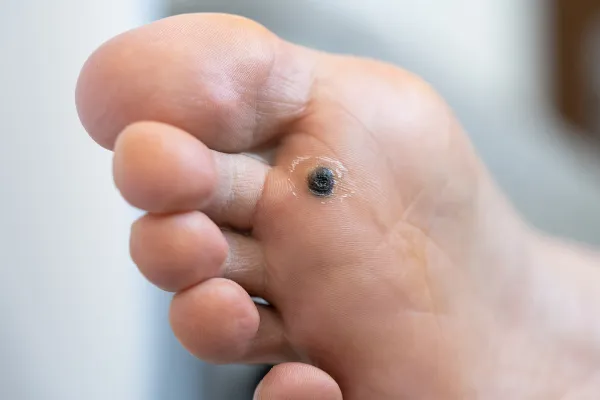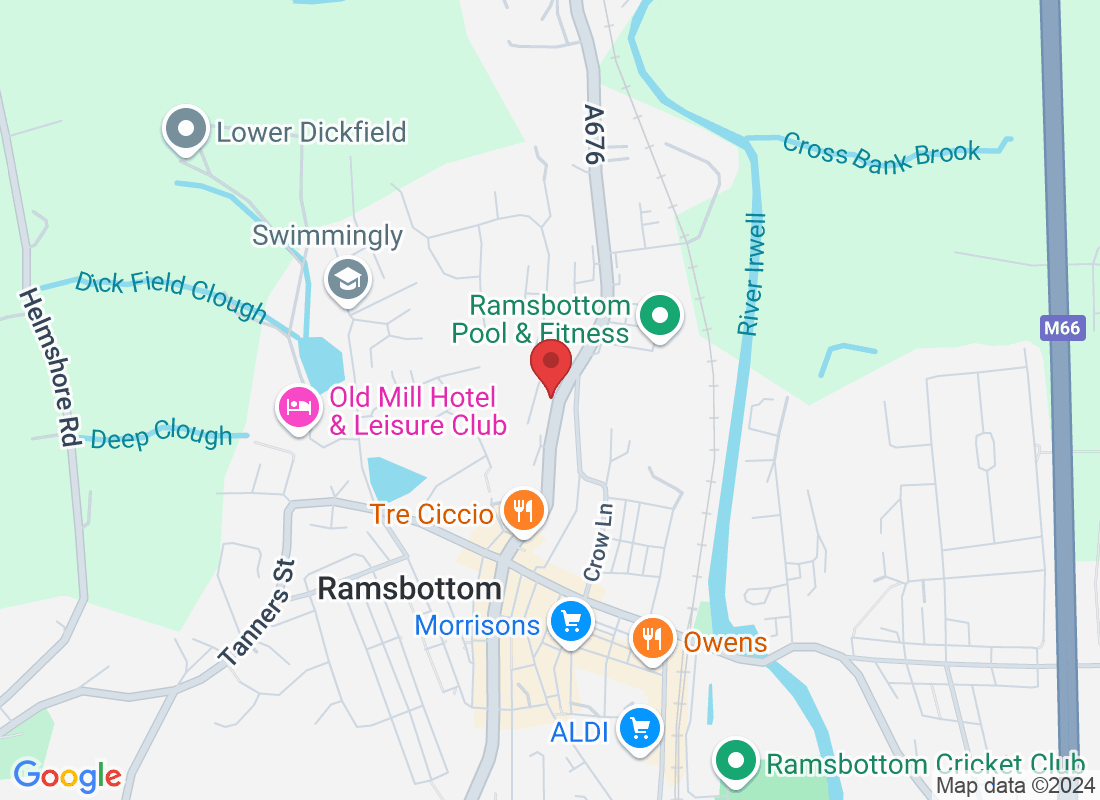
How to Spot a Verruca—and What to Do Next
Have you noticed a strange bump or rough patch on the bottom of your foot and wondered, “What on earth is that?” You’re not alone. That small, sometimes painful spot might just be a verruca – a very common and treatable foot problem.
In this post, we’ll explain how to spot a verruca, what causes it, and what you can do about it (hint: the sooner you treat it, the better!).
What Exactly Is a Verruca?
A verruca is a type of wart that appears on the sole of the foot. It’s caused by a virus (HPV – human papillomavirus), which can enter the skin through tiny cuts or cracks. Because we walk on the soles of our feet, verrucas often get pushed inward rather than sticking outward like other warts. This is why they can sometimes feel like you’re walking on a pebble.
How to Spot a Verruca: 5 Common Signs
Not sure if it’s a verruca or something else? Look out for these tell-tale signs:
Hard, rough patch of skin – Usually on the sole of the foot or heel
Tiny black dots in the centre – These are clotted blood vessels, sometimes called “wart seeds”
Pain when walking or standing – Especially when pressing on it
Interrupts the natural lines of your skin – Verrucas disrupt the normal skin pattern
Can appear alone or in clusters – One or many, depending on how long it’s been there
If you’re unsure, a podiatrist can help confirm what it is and guide you on next steps.
What Causes Verrucas?
Verrucas are caused by a virus, which loves warm, moist environments like swimming pools, gyms, and communal showers. You can pick it up from walking barefoot in these places – even if your feet feel fine at the time.
You might not see the verruca straight away. It can take weeks or even months before it becomes noticeable.
What Not to Do
❌ Don’t pick or cut at it – this can make it worse and spread the virus
❌ Don’t share socks or shoes with others
❌ Avoid over-the-counter freeze sprays unless advised by a professional – they can damage healthy skin if used incorrectly
What to Do Next
If you think you have a verruca, here’s what you can do:
1. Keep it covered
Use a plaster or verruca sock, especially in public places, to stop it spreading.
2. Book an appointment with a podiatrist
The sooner you treat it, the easier it usually is to get rid of. At Prime Foot Clinic, we can assess the verruca and recommend the best treatment.
3. Treatment options may include:
Debridement (removal of hard skin)
Acid-based treatments
Cryotherapy (freezing the verruca)
Swift® microwave therapy – a modern and highly effective option available at many clinics
We’ll guide you through what’s best based on how deep the verruca is, how long it’s been there, and your medical history.
When Should You See a Professional?
It’s time to get help if:
The verruca is painful or getting worse
It’s been there for more than a few months
You’ve tried home remedies with no success
You have diabetes or poor circulation – foot issues should always be checked by a professional
Final Thoughts
Verrucas might be stubborn, but they’re absolutely treatable. With the right care, most people can get back to walking comfortably and confidently—no more hobbling or hiding your feet!
If you’re unsure whether that bump is a verruca or something else, let us take a look. Our friendly team at Prime Foot Clinic in Ramsbottom, Prestwich or Denton is here to help.



